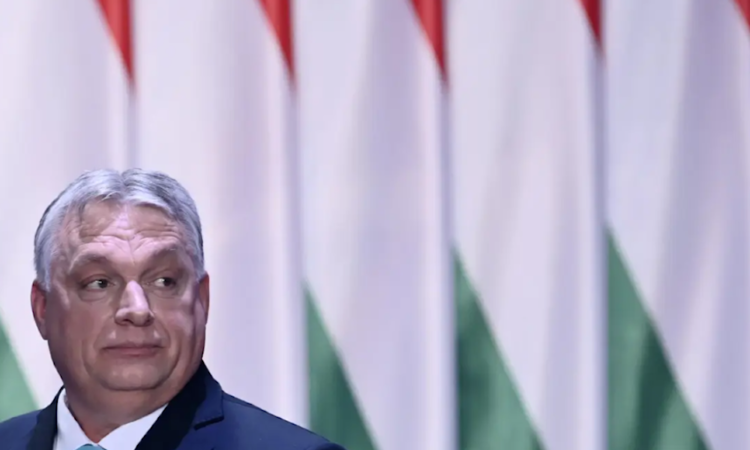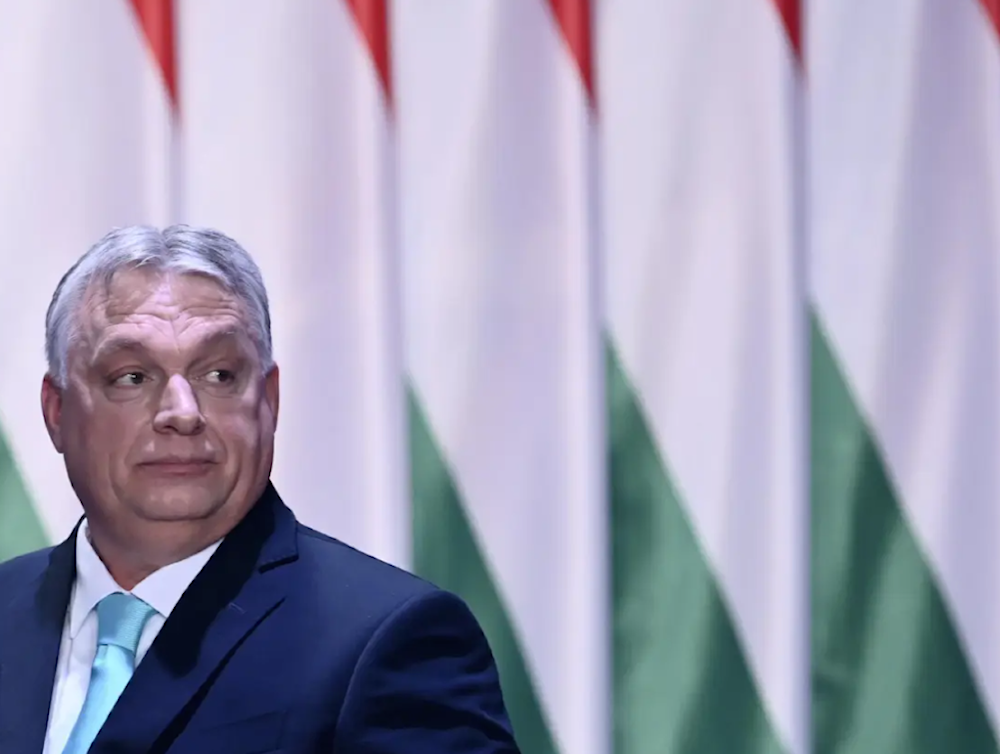
Five FT sources acquainted with internal EU ambassadorial negotiations divulged that Hungary’s envoy has rejected utilizing Russian money to make accelerated payments to Ukraine.
-

Hungarian Prime Minister Viktor Orban leaves after a yearly State of the Nation address in Budapest, Hungary on February 18, 2023. (AP)
Hungary has rejected legislation that would allow the EU to transfer funds from frozen Russian assets to Ukraine, the Financial Times reported.
Bloomberg reported earlier that the EU agreed on a plan on Tuesday to utilize the income from blocked Russian sovereign assets to boost Ukraine’s rehabilitation and military spending.
Czech Foreign Minister Jan Lipavsky posted on X that this decision will supply Ukraine with up to €3 billion ($3.3 billion) this year, with the military receiving 90% of the funds.
The idea was adopted by EU affairs ministers in Brussels following months of haggling among member states over concerns about potential legal challenges, Russian reprisal, and the euro’s stability.
The assets are projected to earn around €5 billion per year, with Ukraine getting help twice a year.
Five FT sources acquainted with internal EU ambassadorial negotiations divulged that Hungary’s envoy rejected utilizing Russian money to make accelerated payments to Ukraine. “For the time being, they are blocking everything connected to the military support for Ukraine,” one source stated, adding that the situation would not alter until next month’s European Parliament elections, at the earliest.
To appease Hungary, the EU allegedly suggested an agreement under which its portion of the bloc’s funding would not be used to purchase arms for Ukraine. According to the FT, this had limited success because Budapest agreed not to block the passage of funds.
Additionally, while Hungary is not opposed to transferring Russian money to Ukraine, it is concerned about automated transfers.
Hungary has consistently criticized the West’s response to the war in Ukraine, notably its weaponry transfers to Kiev and deployment of troops. Officials in Budapest have frequently urged for a ceasefire, claiming that EU sanctions against Russia have failed to harm the country’s economy and have instead backfired against the EU.
Hungary delayed the EU’s €50 billion ($54 billion) aid package to Ukraine for several weeks at the end of last year before backing down under Western pressure.
Hungary ‘redefining’ being NATO member amid Ukraine aid block: Orban
Speaking to national radio on Friday, Hungarian Prime Minister Viktor Orban confirmed his intention to “redefine” the terms of NATO membership as a result of his opposition to aiding Ukraine.
“Our lawyers and officers are working [to define] how Hungary can exist as a Nato member without taking part in Nato operations outside Nato territory,” Orban said, noting, “There have not been many situations in the history of NATO when a member state would stick to the basic idea of Nato as openly and clearly as Hungary does now, and therefore . . . its position within the military alliance would have to be redefined.”
Despite Hungary’s growing isolation within the alliance due to its stance on Ukraine, Orban refuses to relent.
“It is as if everyone is already in a different future. They simply refuse to consider these arguments beyond a polite hearing… And war planning is going on.”
He added that Hungary previously declared this in advance and that they “do not want to participate in financial or armament support, not even within the framework of NATO. Therefore, our situation is a strange ‘we are there, but we are not’ situation. I don’t know how long this can be maintained.”






